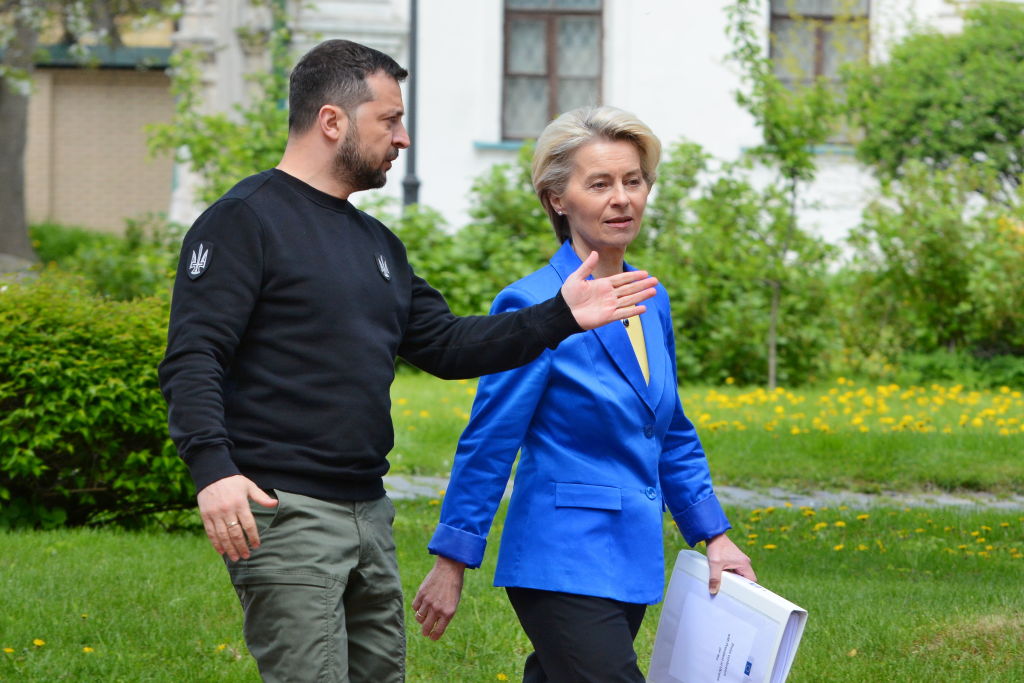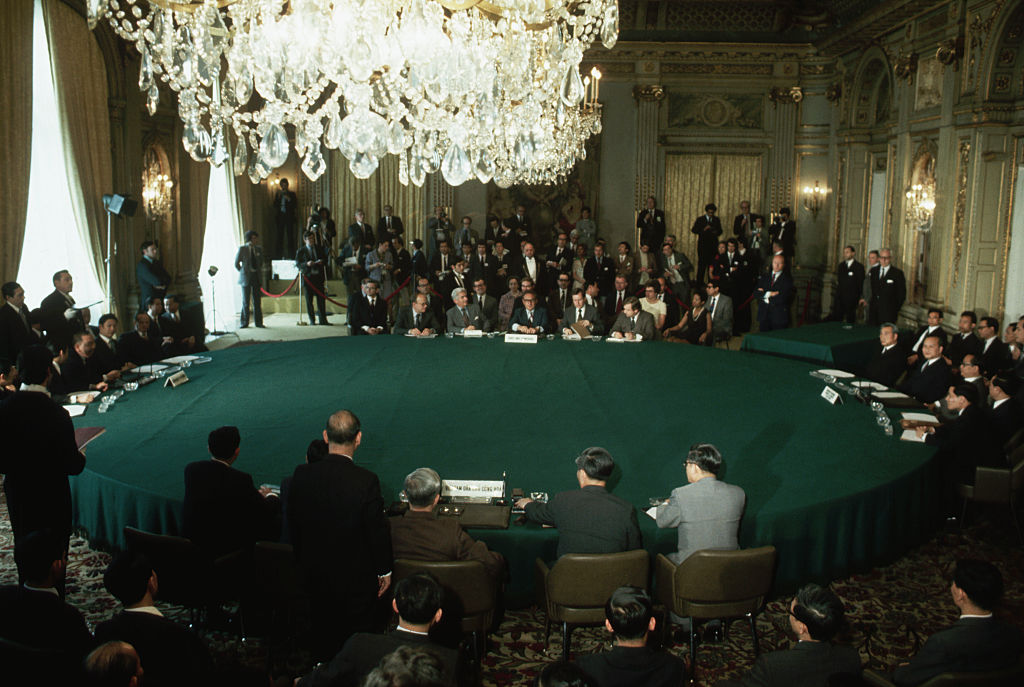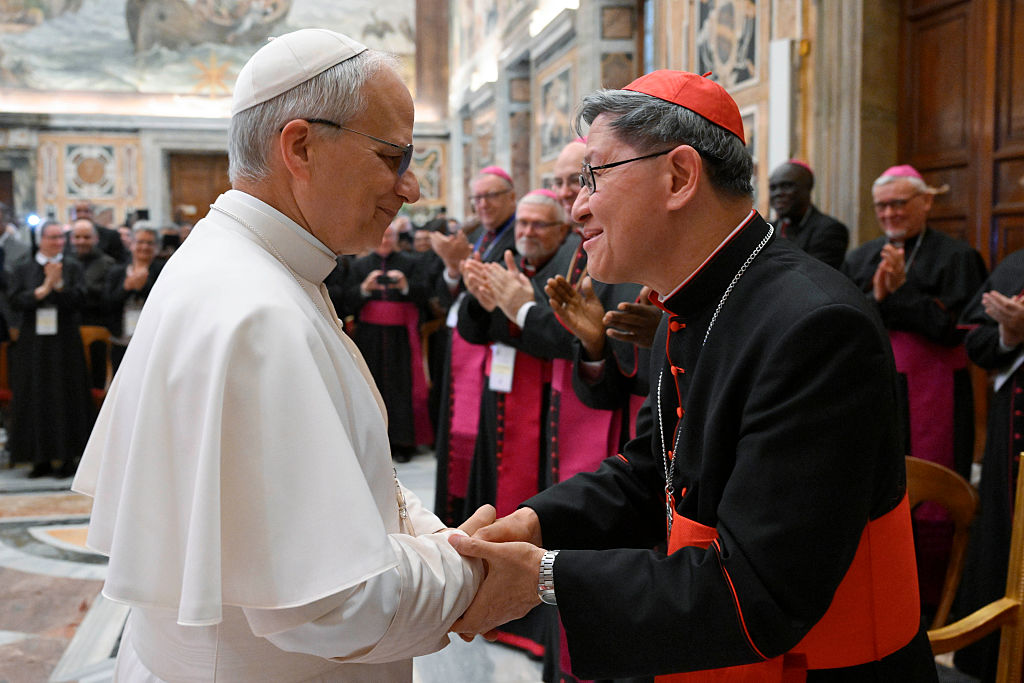A scenario European leaders would do well to consider, as Kyiv enters the Washington-sponsored peace process with profound frustration: with the White House determined to put an end to the war in Ukraine, the Europeans are telling Zelensky that no peace is necessary. The war can continue indefinitely, they say; and, if the Americans want out, Europe can still step in to fill the void.
But Zelensky is foolish to believe that the Europeans will save him from the forces of reality. Europe, the last bulwark of the once-insurmountable pro-war consensus, is a continent of hawks without beaks. Ukraine cannot defeat Russia with just European support. Ukraine will collapse.
Look at what will happen then. Ukraine’s predicament seems increasingly reminiscent of that of the Second Spanish Republic after its defeat at the battle of the Ebro in late 1938 destroyed any remaining hope of turning the tide.
Ukraine’s Ebro was its disastrous counteroffensive in 2023. Since then, Kyiv’s position has become more and more untenable. As the public loses the will to fight and political infighting in Kyiv becomes too loud to ignore, conditions seem increasingly ripe for a collapse of order and a grave internal crisis.
In March 1939, convinced that the war was lost and that prolonging it was causing a needless, useless loss of life, Spanish Republican officer Segismundo Casado deposed the pro-war government of Juan Negrín, leading to a collapse of the Republic and to the complete, unconditional victory of General Franco. Such fears appear more pertinent still if one considers that Zelensky is now a deeply unpopular leader, with polls suggesting he would lose a new election against former general Valeriy Zaluzhniy by as much as 25 per cent to 75 per cent of the vote.
This is a scenario Europe’s leaders would do well to consider. The grave demoralisation of Ukraine’s fighting men and society puts the country at the edge of the precipice. Like the Russian Empire in 1917 or Hohenzollern Germany in 1918 prove, military and political collapse occurs gradually, then suddenly. Either through an upsurge in political infighting back in the capital, due to a Russian breakthrough, an attempted coup, the beginning of large scale protests, it is not impossible to imagine a scenario in which Kyiv’s military experiences an implosion of discipline, enabling not a negotiated end to the war that secures at least a Ukrainian buffer for Europe but instead a complete Russian triumph.
In this case, Moscow’s forces would likely march to Odessa, annex anywhere between 30 per cent and 50 per cent of Ukrainian territory and likely place themselves in large sections of the Ukrainian-EU border. This wouldn’t only be a reputational catastrophe for the EU—it would transform the balance of power across the continent in ways disastrous to the interests and security of its member states.
What are our leaders thinking? Most likely, they are not thinking at all. Europe is stubbornly sticking to a policy of self-delusion, foolishly telling the Ukrainians to, as Hungarian Prime Minister Viktor Orbán has put it, continue a war that was long lost. The sole sensible policy would be the opposite of what Macron, Merz, and Starmer are eyeing. Right now, true friends of Ukraine would tell it the truth: that even a withdrawal from the areas still controlled by the Ukrainian armed forces in Kherson, Zaporizhzhia, Luhansk, and Donetsk oblasts, together with geopolitical neutrality, limits on its military, and sizeable political and cultural concessions to Moscow—namely regarding the status of the Russian language and of the Moscow-aligned Ukrainian Orthodox Church—is still preferable to any likely alternative, and that to refuse this reality is to potentially compromise Ukrainian statehood itself.
Not even the world’s most masterful spin doctors could make us forget how Josep Borrell, the predecessor of Kaja Kallas as EU High Representative for Foreign Affairs, once told us that the Ukraine war would be ‘won on the battlefield’, and that negotiations with Moscow would be ‘appeasement’ of the aggressor. This foolish mantra has guided policy on Ukraine ever since. There is ample evidence that Boris Johnson and other Western leaders indeed talked the Ukrainians into abandoning the 2022 peace talks, even though the deal agreed with Moscow was so generous towards Ukraine that Kyiv’s delegation reportedly celebrated it by “opening champagne bottles”. A toxic mix of bravado and self-delusion even led Zelensky to forbid, by decree, any peace talks with the Russians—a self-prohibition he has now been forced to breach. However, the path of dialogue seems increasingly urgent for Kyiv. Failure to take it now may lead the country to disaster, and the EU to its worst ever strategic defeat.
Recent months have shown the reality of a toothless, utterly out-of-depth Europe with naturalistic candour. Baffled by America’s push towards a negotiated settlement in Ukraine, Europe’s elite of TikTok bureaucrats and political lightweights is scrambling to keep up the appearance of European relevance. They have long been wrong about almost everything: the wisdom of the NATO/EU Drang nach Osten, implemented in the belief that the Russian bear would never again rise from geopolitical hibernation; that Russia was a military and political paper tiger; that Washington’s interest in disengaging from the continent, inevitable ever since Beijing took Moscow’s place as the world’s secondary centre of power (and first announced by Obama, not the reviled Trump, as the ‘Asia Pivot’ almost 15 years ago), could be undone with the illusion of the narrative of a neo-Hitlerian ‘Russian threat’ to the East; and that this charade could safeguard Europe’s one-sided security relationship with the Americans without them ever noticing.
Now, with the White House determined to put an end to the war in Ukraine, Brussels is telling Zelensky what Ukraine needs is not a permanent peace deal but a temporary, 30-day ceasefire—an attempt to gain time in the hope of returning Washington to its previous pro-war position.
For Kyiv, this would not be without its advantages, at least as far as its president is concerned. If Zelensky were to accept peace now, so too would he need to admit that he was cataclysmically wrong to refuse signing the comparatively much more generous peace deal proposed to him by the Russians in Istanbul, back in early 2022.
Had the war ended there, Ukraine would have lost no new territory; the only meaningful concession it would have made was to relinquish NATO membership. Fast forward three years and Ukraine’s NATO membership is not even on the negotiation table. Ukraine is wrecked, with the UN estimating that its population will shrink from 52 million in 1990 to 15 million by 2100. Millions are dead, the country is in ruins. Zelensky’s political survival is now tied to the continuation of the war and the avoidance of new presidential elections that he would most likely lose. It is thus no surprise that, with European sponsorship, the Ukrainian President is doing his utmost to sabotage the US-Russia talks while proclaiming that an end to the war is ‘still very, very far away’.
Months ago, Kallas risibly announced on X that the ‘free world needed a new leader’—Estonia’s former Prime Minister (that is, Kallas) presumably saw herself as a fitting candidate for the job. Starmer, meanwhile, initially echoed Blair in announcing Britain’s determination to ‘lead’ this ‘coalition of the willing’ and march into Ukraine with ‘boots on the ground and planes in the air’.
Macron, for his part, pressured the Americans to accept an alternative ‘peace plan’ to Trump’s, with a month-long ceasefire in the air and sea, though hostilities on the ground would continue. The Russians, of course, ignored this grandstanding. From their point of view, Macron’s ceasefire proposal was absurd: Russia owns the world’s third largest air force, Ukraine barely has flying airframes left. France’s plan meant a sizeable, unilateral concession on the part of the Russians. Putin’s rejection of the idea thus came as no surprise.
Starmer’s bravado, too, was always phoney. Like others in the continent, Britain has been almost wholly demilitarised by decades of bipartisan misrule: the country’s functioning tank force may be as shallow as 40, even as Russia’s stands at somewhere around 4,000 and on its way to reach 7,000 by 2030—at least, according to Macron’s recently televised address. The Royal Air Force’s Woke-mania left it without pilots; it is doubtful that its army could deploy more than 10,000 men—a division-sized force—on short notice. Tiny as that is, London would still struggle to maintain it for any longer period of time. France has a substantially more serious military, but the idea that it could scare Russia’s million-man force in Ukraine is not credible.
Even as the Europeans fret on the direction the war in Ukraine has taken, the fact of the matter is that they are bereft of cards. France is paralysed with a hung parliament. There is strong opposition, both on the Left and the Right, to any Ukrainian adventure. Intentions to multiply the continent’s defence spending might sound good on paper, but where will the money be coming from? France is sinking in a financial storm: The country’s public debt stands now at 3.3 trillion euros, or a crushing 112 per cent of GDP. The budgetary deficit, too, is out of control at over 6 per cent of GDP. Political chaos is approaching: A new legislative election later this year seems likely, and Macron’s resignation cannot be ruled out. The French leader is massively unpopular—his approval ratings stand at around 21 per cent—and hardly has the political capital to divert tens of billions of euros in social spending towards the production of new tanks and missiles.
Even if such a policy of rearmament was pursued—an impossibility in today’s realities—it would be years before it could produce results. A strong defence sector is both capital and technology intensive. It requires massive investments in R&D and millions of skilled, hard-to-find and hard-to-train workers. Without the US enthusiastically on board, the Ukraine war is well and truly over. Talk of a grand remilitarisation of Europe might sound admirable, but the financial realities are what they are. Either the Europeans commit economic seppuku through even larger debts, or they agree to dismantle their generous welfare states. They will do neither.





If Russia takes Ukraine, there will be 30 years of insurgency